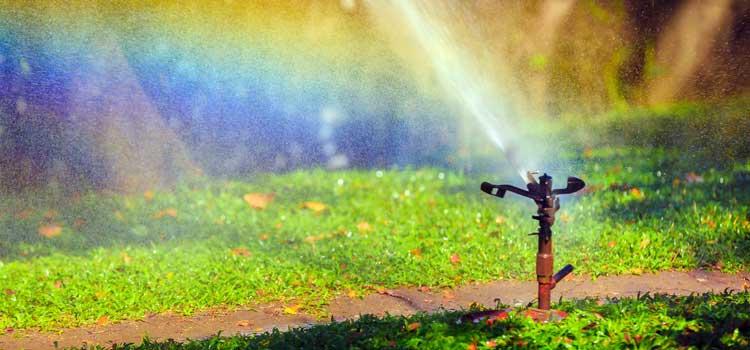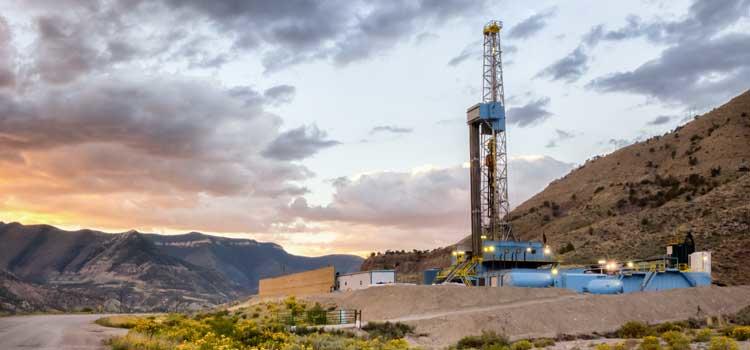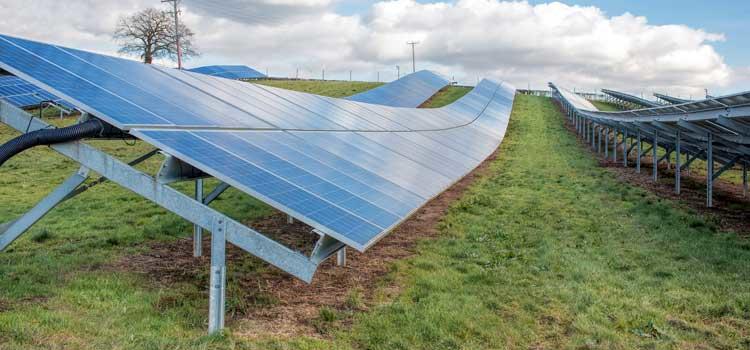
Water conservation is becoming more and more important as the Earth's population grows.
May 10, 2017
When you turn on the kitchen tap, hop in the shower or flush the toilet, chances are you don’t think much about where that water came from, or where it’s going.
But that may soon change.
As pressures mount on our water supplies due to growing demands and sources altered by a changing climate, Canadians may soon be reusing water. “It’s happening in California and Singapore has been doing it for years,” says Dr. Leland Jackson, PhD, a professor in the Department of Biological Sciences in the Faculty of Science. “In Singapore, about 30 per cent of water used is recycled wastewater, including bottled water.”
Jackson is the scientific director at ACWA, Advancing Canadian Wastewater Assets, a unique partnership between UCalgary and The City of Calgary that has embedded research facilities into a full-scale, working wastewater treatment plant. ACWA researchers are developing new technologies, and exploring innovative applications of existing ones, in order to transform wastewater treatment methods.
“In cities today we turn on the tap, water flows out and we rarely ever worry about drinking it or whether it’s ever going to stop flowing,” says Jackson. “This leads to a sense that it’s always going to be like this, but I think that’s going to change.”

Water conservation is becoming more and more important as the Earth's population grows.
Water conservation methods, such as low-flow toilets, low-flow shower heads and planting drought-resistant plants in our gardens (xeriscaping) are all part of the solution. “These are good initiatives and they help,” says Jackson. “But we also have to think about how we can get more out of the water we do use. And that means new treatment processes so we can consider more options with what we do with our wastewater.”
Right now, 20 per cent of people on the planet don’t have access to clean drinking water, about half the planet doesn’t have access to adequate sanitation and urban centres are the biggest sources of pollution. “That’s where ACWA comes in,” says Jackson. “We are developing and testing technologies that will equip us for the future here in Calgary and around the world.”

Energy extraction operations also affect the landscape they're based on.
When most people think of fracking – hydraulic fracturing of underground rock to extract oil and gas – they think of it solely as something that goes on below the surface. But fracking, whether from one well or thousands, also has impacts on the landscape.
“The well sites are connected by roads, and there are cumulative effects of those roads,” says Dr. Mary-Ellen Tyler, PhD, associate professor in the Faculty of Environmental Design. “But fracking is not considered a land use and municipalities that are responsible for land-use planning are not part of fracking decisions.”
In Alberta, fracking is regulated by the Alberta Energy Regulator and in some cases municipalities may not even be aware that fracking is occurring in their area. In an effort to improve how decisions are made around land use, Tyler and her colleagues used existing data to see where there may be “spatial land-use conflict” between fracking and other uses.
“It isn’t fracking or agriculture or fracking and recreation. We looked at it from a regional land-use planning point of view, not to necessarily be critical of fracking, but to try to understand the trade-off of fracking as a land use,” she says. “We are looking to find spatial configurations at large scales that minimize land-use conflict and maximize ecosystem services such as wildlife, fish, wetlands, and watersheds.”
Fracking has an economic benefit, but it’s important to understand what other things people value in an ecosystem in order to minimize negative effects and maximize multiple land-use potential. “We are looking for design solutions to land-use conflict,” says Tyler. “If you value grizzly bears or you value fish species, then you want those values in the landscape too.”
While some may think switching from fossil fuels to renewable sources of energy is as easy as flipping a switch, transitioning from burning coal, oil and gas to solar, wind and other clean energy is going to be a long, expensive and complicated process.
Researchers at CESAR (Canada Energy Systems Analysis Research) are diving into a number of complex issues around how to make Canada’s energy systems more sustainable. They’re developing tools to analyze and visualize past, present and possible future energy systems to inform policy and investment decisions on energy systems change.
“We are creating models that provide insights into the costs, benefits and trade-offs associated with different energy futures,” says Dr. David Layzell, PhD, CESAR director, and professor in the Department of Biological Sciences in UCalgary’s Faculty of Science. “We are exploring pathways for transforming the Alberta electric grid, reducing the carbon footprint of oil sands production and assessing how electric vehicles may impact both the grid and demand for oil.”
Another recent open-access project provides a series of Sankey diagrams that shows the flow of energy through national and provincial energy systems between 1990 and 2013. The diagrams compile vast amounts of data in one place, making it easy for people to see energy production, import, export and consumption in Canada. “You can’t manage what you can’t see,” says Layzell. CESAR’s interdisciplinary team also works with graduate students and teams of undergraduate students to explore different energy transition pathways.
“We want to elevate the conversation,” Layzell says. “Decision-makers need ‘evidence-based’ tools when they’re setting climate change targets and developing and implementing strategies to meet those targets.”

The transition to renewable energy sources, such as solar, could take decades.
In Germany, it’s known as Energiewende, renewable energy transition, and Klimaschutz, climate protection, and the European country is way ahead of Canada in moving from fossil fuels to using renewable sources of energy.
“As of 2013, more than 21 million Germans live in regions that either already have 100 per cent renewable energy or have programs to secure 100 per cent power from renewable energy sources,” says Dr. Mishka Lysack, PhD, associate professor in the Faculty of Social Work. “We can learn a lot from Germany.”
For one thing, how ordinary people create energy co-ops in cities, towns and neighbourhoods, build renewable energy systems and sell excess power to the grid. German citizens run more than 800 energy co-ops that generate renewable energy and revenue for families and communities. Germany is also developing technology for transitioning to renewables, an industry that could create jobs and diversify the economy here.
With SSHRC grants and in partnership with the German Embassy in Ottawa, Lysack brings German researchers, business and political leaders to cities across Canada to discuss best practices and how to develop strategies and policy pathways toward a low carbon economy.
“Social workers have a long history of advocating for policy that betters the human condition,” says Lysack. “Helping educate the public and doing knowledge mobilization through innovative leaders from various sectors will help further Canada’s transition to a decarbonized and renewable energy economy.”
– – – – –
Participate in a research study
– – – – –
Dr. Leland Jackson, PhD, is a professor of Ecology and Evolutionary Biology in UCalgary's Faculty of Science and scientific director of Calgary’s Advancing Canadian Wastewater Assets (ACWA) research initiative. View Leland's publications
Dr. Mary-Ellen Tyler, PhD, is a former dean of the Faculty of Environmental Design at the University of Calgary. Her professional work and research include landscape ecology, regional land use planning, ecological restoration, urbanizing watersheds and resilience in social ecological systems.
Dr. David Layzell, PhD, studies energy systems, with a particular focus on understanding and identifying strategies for transforming Canadian energy systems towards sustainability. View David's publications
Dr. Mishka Lysack, PhD, is an associate professor in the Faculty of Social Work. His research is focused on the connections between a healthy environment, renewable energy and a sustainable economy, as well as connections between community, social health and well-being. View Mishka's publications